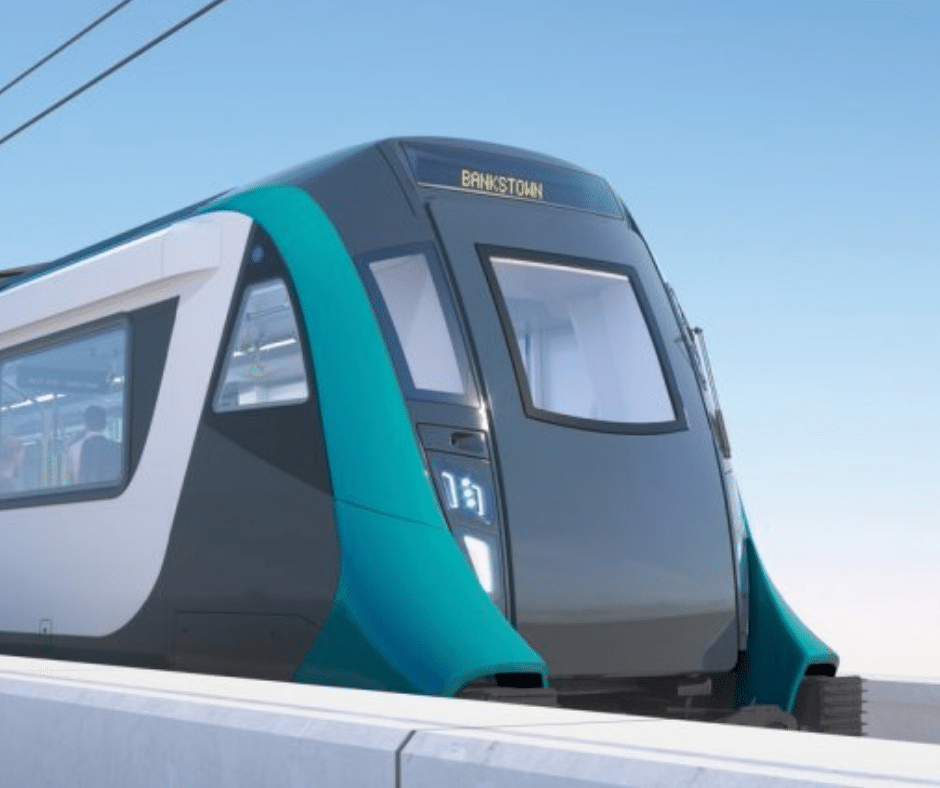Why The Environment & Sustainability Went Off the Rails
Since the invention of the Steam Engine and the dawn of the Industrial Age, Rail Travel has transformed industries, societies and economies around the world.
In a way, Railroads were the initial catalyst for the frantic economic growth which put humanity on track towards the eventual climate change dilemma we find ourselves in today. The arrival of mass-produced cars, trucks, and airplanes had a big part to play as well. The rise of densely populated cities and urban sprawl has led to massive traffic congestion and pollution problems which we are all too familiar with.
Modern Rail: Shunting towards a greener station
Advancements in Technology in Mass transit infrastructure, particularly in Trains, have resulted in significant improvements to the efficiency, speed and safety of rail transportation.
In contrast to the early days of rail travel (coal-powered steam engines), automobiles and airplanes are now amongst the largest contributors to greenhouse gas emissions (GHG) and environmental pollution.
Airplanes contribute to more than 85% of air pollution, while trains emit less than 15% of these emissions. Jet aircraft also require more fuel when taking off and landing.
Modern Trains on the other hand are mostly clean and non-polluting – being electrically powered – with the exception of some diesel-powered train cars. Heavy rail and light rail commuter trains are the most efficient forms of mass transit when compared to buses and airplanes, particularly when it comes to CO2-e tonnes per thousand capita in transit.
In a report published by the Climate Council, it mentioned that “Cars emit about the same emissions as Queensland’s entire energy supply grid.”
It also revealed the OECD’s scorecard: Australia lags in resolving transport emissions issues. It is 45% higher (per capita) compared to other countries.
Given these facts, it’s no wonder that Australian Governments are ramping up investment in heavy rail and light rail projects across the country to reduce emissions from vehicles to support Australia’s goal of achieving Net Zero by the year 2050.
The Federal Government allocated $A 2bn ($US 1.4bn) towards upgrading the Melbourne – Geelong line in the state of Victoria to raise average train speeds to 160km/h, reducing the journey time from an hour to around 32 minutes.
$A 40m has also been allocated to develop business cases for five additional higher speed corridors; Sydney – Wollongong, Sydney – Parkes via Bathurst and Orange, Melbourne – Albury-Wodonga, Melbourne – Traralgon, and Brisbane – Gold Coast.
The government will provide $A 3.5bn towards the first stage of Western Sydney North-South rail link, which will incorporate a new line to the planned Western Sydney airport.
Aside from reducing pollution levels and carbon emissions, investing in high-speed rail and metro infrastructure has significant economic and societal benefits. Not least of which includes jobs growth and increased productivity as inter-city and intra-city transit lines are established, better connecting residential communities to commercial districts.
The Role of Rail Transport
Rail-based transportation plays an essential role in economic development, driving jobs growth and minimising greenhouse gas emissions with fewer cars on the road.
The Metro Sydney Project’s environmental impact was divulged on their online transcript.
Various carbon and energy management plans are in place following ISO 14064-1, ISO14064-2 & ISO14064-3. Also, workers were advised to use public transportation when reporting to the site.
New or expanded rail infrastructure would require massive amounts of electricity to power. Clean energy from renewables will play an increasingly significant role in supplementing the electricity supply to meet increased demand. New rail infrastructure and public amenities however can be built with the latest in energy-efficient equipment to ensure minimal impact on the electricity grid.
Other Benefits to Mass Rail Travel
Aside from reduced emissions and fuel savings, railways also lowers noise pollution levels. Noise pollution can affect a person’s psyche and trigger hypertension or sleep disturbance. Technologies such as synthetic brake blocks to help decrease noise while trains run on their tracks.
Rail dampers are often used to absorb vibrations to minimise noise. In some urban areas, sound barriers are built along railways as noise mitigation measures.
Rail travel helps improve accessibility to shopping and business districts. It encourages people to commute for work or leisure. Riding the train is a good way to relax while enjoying the scenery. If people can reach their destination faster and safely, it helps open the city and its economy.
Another benefit of rail transportation is the reduction of road congestion. Freight trains can carry more goods compared to their road counterparts. Besides, around $0.21 is saved from every tonne of KMs moved by freight rails.
Rail travel is the best way to move people sustainably. It helps save the environment and our precious, natural resources.
Energy Efficiency and the Railway Sector
Moving people safely and efficiently requires more energy. However, powering these railways may hurt the environment if clean energy and energy efficiency is ignored or under-utilised. Energy efficiency is the missing link for governments to achieve Net-Zero.
Implementing energy efficiency upgrades to existing train stations can help railway operators save money on electricity bills. Smart energy management through IoT-enabled solutions gives them visibility on their power consumption and monitor carbon emissions.
Ecosave specialises in helping government and commercial organisations reduce their energy costs and carbon emissions by implementing end-to-end energy efficiency and sustainability solutions. For more information please call 1300 55 77 64 or click here to request a Free Call Back service.





